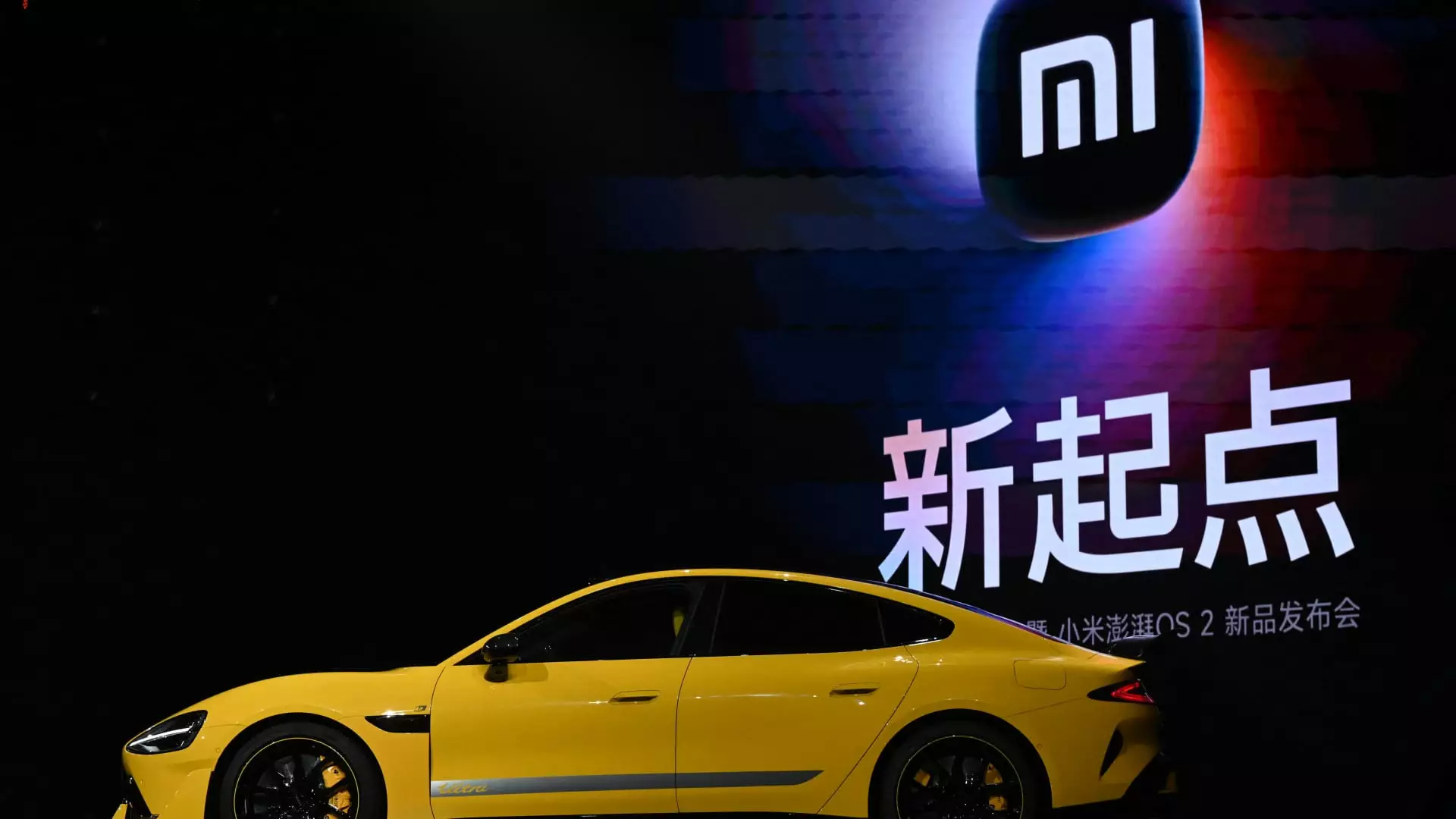China’s electric vehicle (EV) market is recognized as one of the most dynamic and competitive automotive landscapes globally. Recently, the spotlight has turned toward Xiaomi, a company primarily recognized for its smartphones and consumer electronics, as it progresses rapidly in the EV sector. With the recent announcement of delivering over 20,000 SU7 EVs in October alone, Xiaomi’s ambitions become clear—this tech giant is not merely dipping its toes in the EV waters but is diving headfirst to carve out a significant share of the robust market.
Xiaomi unveiled its plans to enter the electric vehicle market back in 2021, a strategic decision that many foresaw as a logical extension of its existing technology prowess. The establishment of a dedicated manufacturing plant to produce its electric vehicles signified its commitment to this venture. The SU7, Xiaomi’s debut model, launched at a price point approximately $4,000 lower than Tesla’s Model 3, hoping to attract a considerable portion of price-sensitive consumers in the world’s largest automotive market.
Unlike other new entrants into the EV sector, Xiaomi has showcased remarkable efficiency in its production capabilities. The company has reportedly delivered over 75,000 SU7 units since the launch, indicating that it attempts to scale operations significantly faster than established rivals like Xpeng and Nio, who took years to reach similar delivery milestones. Such rapid progress places Xiaomi in a favorable position to disrupt the traditional automotive players significantly.
The competition in the Chinese EV market is fierce, with brands such as Xpeng, Nio, and newer entrants like Zeekr making headlines with substantial production figures. Recently, Xpeng achieved a monthly delivery record of over 20,000 cars in September, aided by its budget-friendly brand Mona. Conversely, Nio has faced challenges maintaining consistent delivery numbers above the 20,000 threshold. Xiaomi’s current monthly deliveries suggest that it is positioning itself to contend seriously with these established players, reinforcing its status as a formidable competitor in a field characterized by rapid innovation and shifting consumer preferences.
Analysts, such as Brian Tycangco from Stansberry Research, posit that Xiaomi’s swift moves and strategic pricing indicate its ascent as a significant force in the EV market. Xiaomi’s ability to maintain comparable gross profit margins to its rivals further underscores its operational efficiency and market acumen. This performance is critical as the company prepares to launch additional vehicles in the coming years, such as the high-performance SU7 Ultra, which has already generated significant pre-order interest, with customers showcasing eagerness even before the model’s release.
Xiaomi is not only focusing on volume; it’s also emphasizing technological prowess. Reports suggest that the prototype of the SU7 Ultra has achieved remarkable feats, including being labeled the fastest four-door sedan at the Nurburgring race track in Germany. Such achievements are vital marketing tools, significantly elevating the brand’s profile within the competitive EV landscape.
As the company gears up to release more models and aims to bolster its delivery targets, analysts have become increasingly bullish on its prospects. Updates from Citi analysts reveal an improved outlook on Xiaomi’s delivery forecasts, suggesting the potential for 250,000 vehicles in 2024, thereby elevating Xiaomi’s stature in the automotive sector.
Despite the promising trajectory, significant hurdles remain for Xiaomi. While the company has made strides within the domestic market, its plans for overseas expansion come with their challenges. Earlier this year, Xiaomi indicated that it would require two to three years before launching its vehicles in international markets. Overcoming regulatory barriers, establishing a reliable supply chain, and creating a robust marketing strategy will be imperative to making a successful leap beyond China’s borders.
Furthermore, the EV industry is marked by rapid technological evolution and changing consumer preferences. Continuous innovation will be essential for Xiaomi to maintain its competitive edge and bolster its product lineup against an onslaught of advanced features offered by rivals.
Xiaomi’s rapid rise within the electric vehicle market exemplifies how technology companies can successfully transition into new sectors. With robust production capabilities, strategic pricing, and an ambitious vision for the future, Xiaomi is poised to play a significant role in shaping the landscape of the EV industry. As it navigates through challenges both domestically and internationally, it will be interesting to watch how this tech giant capitalizes on its strengths to impact the broader automotive market.

